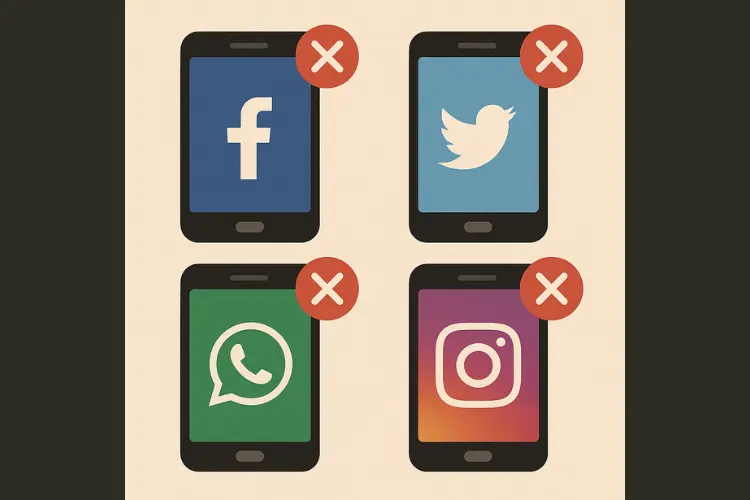1. “The Talk” — Not a One-Time Thing
Teens roll their eyes when parents bring up online dangers, but this talk is critical. It covers adding strangers, posting risky content, and long-term digital consequences. Instead of a single awkward conversation, parents should break it into ongoing talks. Discuss everything: sexting, body shaming, cyberbullying, and pornography. The digital world changes fast. So should the conversations.
2. Hypocrisy Hurts Your Message
Teens notice double standards. When parents scroll through Instagram after banning it for their kids, it sends mixed signals. Screen time rules should apply to everyone in the house. If you’re enforcing a phone-free dinner, model it. Your actions shape your child’s digital habits. Show them how to unplug, not just tell them.
3. Parental Boasting vs. Digital Boundaries
Parents love sharing their kids’ achievements, but it can feel like over-sharing. Teens often feel embarrassed or violated. Before posting about your child, ask for permission. Set boundaries. Respect their comfort levels. Social media is public, and digital footprints last. Your pride shouldn’t cost their privacy.
4. Facebook, Twitter, WhatsApp, Instagram: Getting It “Wrong”
Teens criticize parents for “cringe” posts or outdated emojis. But expression differs by generation. Instead of mocking, teens should teach. Parents, be open to learning. Still, don’t apologize for being yourself. Your social media isn’t a performance; it’s a connection. Keep it real, but be respectful.
5. Using Bad Science: Yes and No
Some parental warnings sound ridiculous. Like “phones in your pocket make you infertile.” That might be a stretch. But telling teens to avoid screens before bed? Science backs that. The bigger issue is credibility. Parents should research before making claims. Teens, even if you disagree, try to understand the intent: concern.
6. Monitoring Is Not Spying
Teens call it spying. Parents call it protection. Monitoring online activity isn’t about control. It’s about safety. Transparency is key. Tell your kids what you monitor and why. You’re not trying to invade their space; you’re guiding them through a complex world. This builds trust and keeps communication open.
7. The “What Have You Been Doing All Day?” Question
To a teen, this question can sound passive-aggressive. But it can also uncover digital anxiety. Many teens are addicted to social media due to fear of missing out. They feel pressure to stay constantly connected. If your teen reacts emotionally, it might be time to help them disconnect. Encourage offline hobbies, face-to-face talks, and digital detox routines.
8. Fear Is Fueling Their Online Lives
Social media thrives on fear—fear of missing out, being judged, or left behind. Teens admit this. They scroll not for joy but from fear. As a parent, you need to address that. Talk about the emotional toll. Help them understand that disconnecting won’t disconnect them from their value or identity.
9. Social Media Is a Skill, Not a Right
Using social media responsibly is a learned skill. Like driving. You wouldn’t hand over car keys without lessons. The same goes for apps. Parents must supervise until teens show responsibility. This isn’t punishment; it’s preparation. Gradually increase their independence as they show maturity.
10. These “Crimes” Are Actually Conversations
The so-called crimes are really conversation starters. If parents and teens talk more openly, many of these issues dissolve. Set expectations, explain boundaries, and share concerns. Teens want to feel heard. Parents want to feel trusted. Bridging that gap starts with empathy.
Conclusion: A Smarter Way Forward
Parenting in the digital age isn’t easy. Neither is being a teen. But by staying involved, being honest, and setting healthy boundaries, parents play a vital role in shaping responsible digital citizens. These “annoying” habits are not flaws; they are features of good parenting.
For parents who want to support their efforts with technology, tools like CleanRouter make it easier. It filters content, monitors activity, and provides peace of mind—while still respecting your child’s growing need for independence.




